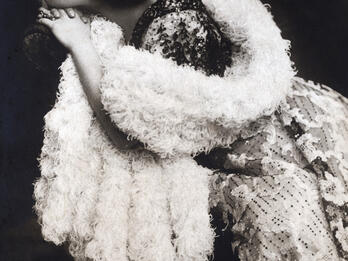Two Kuni Lemels
Abraham Goldfaden
Artist Unknown
1887
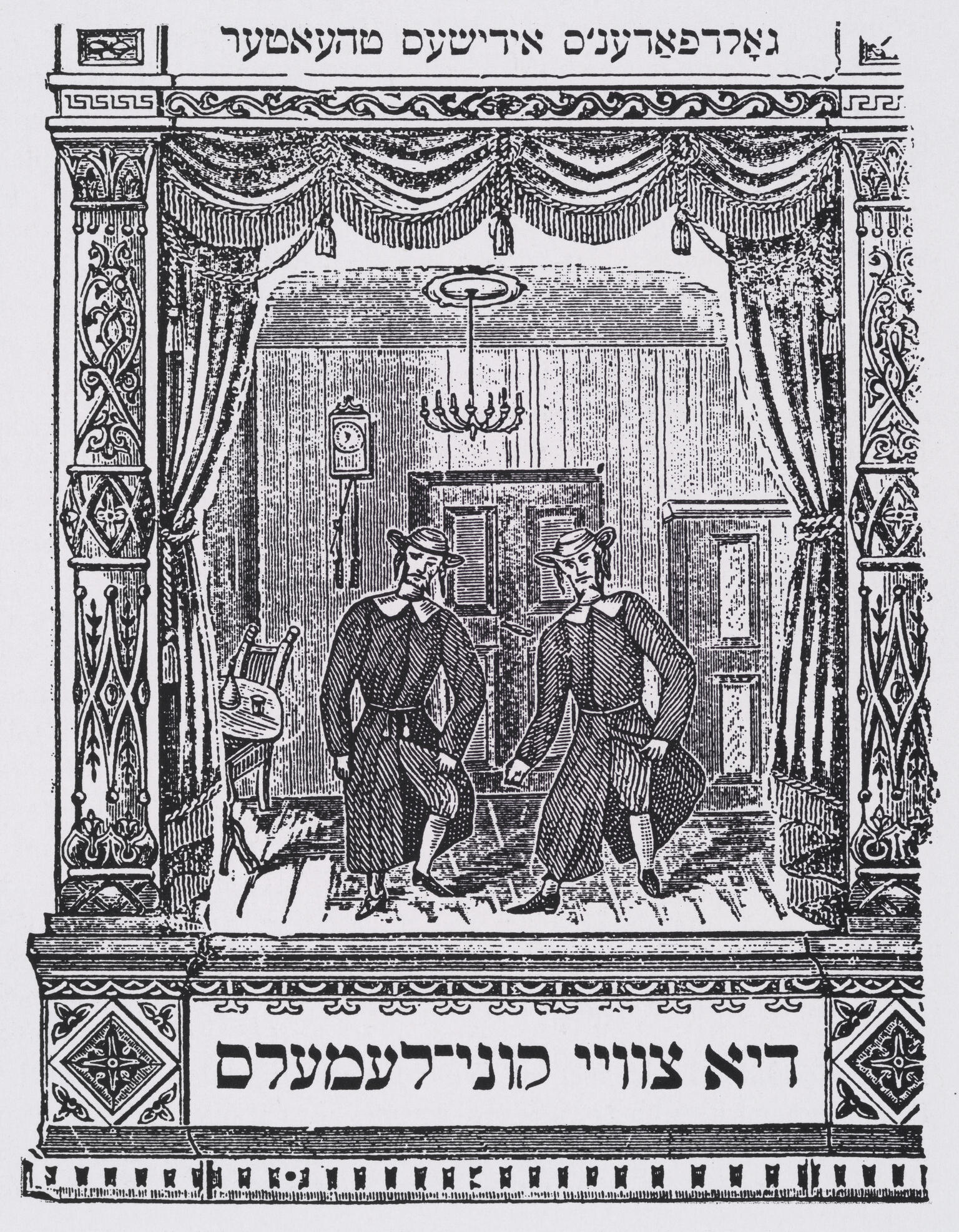
Creator Bio
Abraham Goldfaden
Considered the “father of Yiddish theater,” Abraham (Avrom) Goldfaden was a poet, playwright, and director. Born in Starokostiantyniv, Ukraine, Goldfaden was first introduced to Yiddish theater while a student at the state-sponsored Zhitomir rabbinical seminary, where he performed in a student production of Solomon Ettinger’s Serkele. After a decade as a teacher, Goldfaden became an impresario and writer for the nascent Yiddish stage. In 1877, he moved to Iasi, Romania, where he created sketches, plays, and songs for the stage. His early plays drew upon a variety of European traditions, including vaudeville, operetta, and comedy, through a Jewish angle that stressed education, self-improvement, romantic love, social responsibility, and shtetl life. As his troupe toured the Russian Empire in the early 1880s, Goldfaden’s content became more serious, emphasizing politics, Jewish fate, nationalism, and tragedy and melodrama. In the final decades of his life, Goldfaden was forced by various circumstances to move from city to city, and he flirted briefly with Zionist politics. He eventually settled in New York.
Subjects:
You may also like
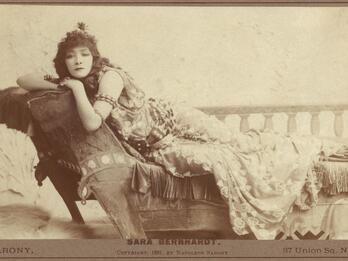
Sarah Bernhardt as Cleopatra
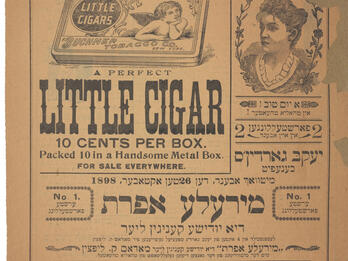
Mirele Efros
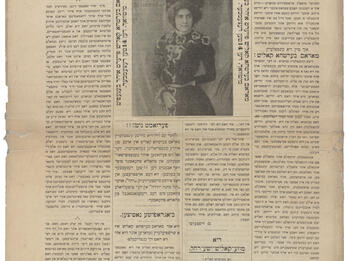
Benefit Lunch with Bertha Kalich
Don Carlos at the Turn of the Century
Purim Eve, a One-Act Comedy
